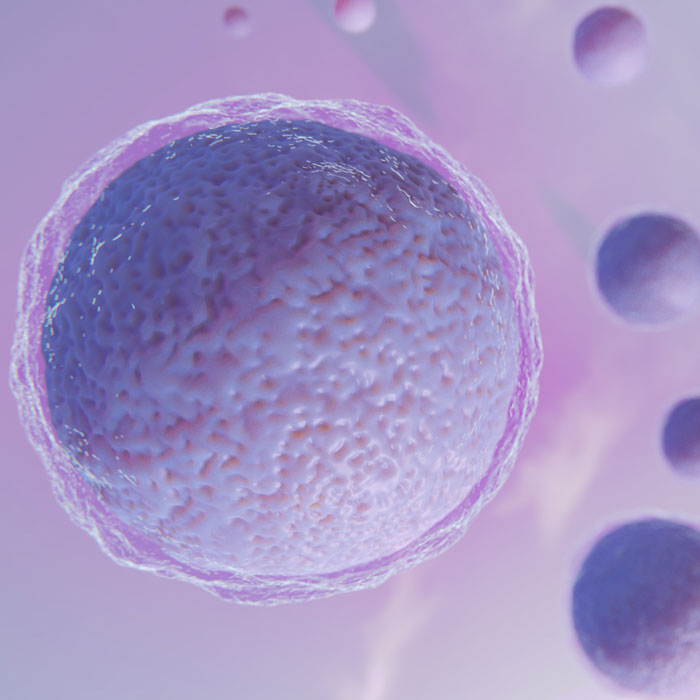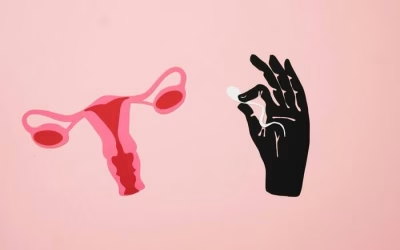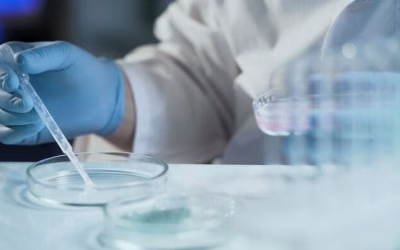What is Ovulation and How Does it Affect Fertility?
Ovulation is the process through which one of your ovaries releases a mature egg, which can lead to pregnancy if fertilized by sperm. This process happens once per menstrual cycle, around 14 days before your next period. Your most fertile days, or “fertile window,” include several days around ovulation, as the egg survives for 12-24 hours, while sperm can live up to five days in your body. Knowing your fertile period can increase your chances of conceiving naturally.
Factors Related to Ovulation That Affect Fertility and Well-being
Despite its importance, many women experience ovulatory problems due to hormonal factors beyond their control. Conditions like Polycystic Ovary Syndrome (PCOS) affect about 5-10% of women of reproductive age, according to the World Health Organization (WHO). PCOS can lead to irregular cycles or a lack of ovulation, impacting not only fertility but also the metabolic and emotional health of women.
Additionally, the use of hormonal contraceptives may suppress ovulation as a mechanism of action. According to a study by the American Society for Reproductive Medicine, many women using these methods experience changes in their menstrual cycles after discontinuation, which can confuse their reproductive health.
Ovulation doesn’t always occur regularly or predictably. Some factors that may interfere include:
- Age: After age 35, ovarian reserve begins to decrease, affecting the quality and quantity of your eggs.
- Stress: It can alter your hormonal balance, affecting the ovulatory cycle.
- Hormonal disorders: Conditions like Polycystic Ovary Syndrome (PCOS) are responsible for approximately 30% of female infertility cases.
- Lifestyle: Diet, excessive exercise, and body weight can also affect ovulation.

Anovulation
Anovulation is a condition where no egg is released, making pregnancy impossible. Common causes include hormonal imbalances, PCOS, obesity, excessive stress, or thyroid issues. If you have irregular or absent cycles, you might be experiencing anovulation. At Nascere, comprehensive testing identifies root causes and offers personalized treatments to help you conceive.
Egg Quality and Ovarian Reserve
Egg quality, not just quantity, impacts fertility, especially as egg quality can decrease with age, raising the risk of genetic issues in embryos. Nascere performs extensive genetic testing to select top-quality eggs during assisted reproduction, boosting success rates. Meanwhile, ovarian reserve refers to your egg supply, which decreases with age. Knowing your ovarian reserve helps with family planning.
Why Ovulation Matters for Women’s Well-being Beyond Fertility
Ovulation is often seen only through the lens of fertility and reproduction, the key event that allows for conception. But biologically, it’s much more than that. Regular ovulation is a vital sign of hormonal health, helping to regulate the production of estrogen and progesterone, two hormones with powerful systemic effects.
Estrogen supports cardiovascular function, bone density, and even skin health, while progesterone promotes emotional stability, sleep quality, and anti-inflammatory balance. When ovulation happens regularly, these hormones follow their natural rhythm, positively influencing mood, energy levels, metabolism, and long-term health.
In fact, consistent ovulatory cycles have been associated with a lower risk of osteoporosis and heart disease, especially when compared to individuals with chronic anovulation (lack of ovulation) or irregular cycles.
So while ovulation is essential for fertility, it’s also a cornerstone of overall well-being — one that speaks volumes about how your body is functioning today and how it may age tomorrow.

Human Reproduction: A Complex Process
While ovulation is essential, fertility also depends on genetic factors, sperm quality, and embryo implantation. At Nascere, advanced genetic testing during fertility treatments helps identify the best eggs for a higher chance of pregnancy. We’ve integrated Magenta™ technology by Future Fertility, which uses AI to evaluate egg quality based on over 120,000 previous images, enhancing the selection of eggs with the highest likelihood of healthy embryo development.
We also use ERA (Endometrial Receptivity Analysis) to determine the ideal time for embryo implantation, maximizing implantation success rates and providing precise treatment.

When to Seek Help
If you’ve tried to conceive without success, don’t wait—consult a fertility clinic at the first signs of difficulty. At Nascere, we offer expert tools, testing, and personalized treatments to improve your chances, from ovulation analysis to advanced techniques like ERA.
We look forward to helping you on your journey!



